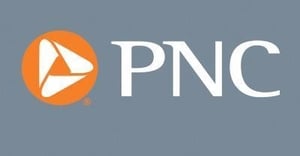
Posting 51.4 in Second Consecutive Monthly Moderation
• The topline ISM Services PMI came in at 51.4 for March 2024.
• The Business Activity component of the ISM Services PMI remained solid at 57.4 as businesses continue to service current demand.
• Backlog of Orders fell sharply in contractionary territory at 44.8 in March 2024
• Services industry hiring edged up modestly to 48.5, still posting a second consecutive month in contraction.
The ISM Services PMI report was down modestly for a second consecutive month in March 2024, posting a topline result of 51.4 for the month. While the Business Activity component index remained solid in the March 2024 report, a nosedive in the Backlog of Orders component suggests that consumer demand for services has come down an octave from the fever pitch seen throughout 2023.The ISM Services index measures net activity among service industry businesses, with a reading of 50 implying an even split between those indicating expansionary and contractionary conditions. March 2024 revealed another step toward that breakeven level for service providers. The mix of current-trend indicators and forward-looking elements of the topline index is showing signs of skew toward current conditions as support for the now barely expansionary reading. Ongoing consumer inflation pressure, slowing wage growth and – most importantly – a moderation in the post-pandemic Revenge Spending phenomenon looks to have cooled potential demand across services industries in the second half of this year.
Service providers revealed a second consecutive month of contraction on the hiring front in March 2024. The Employment component index of the ISM Services PMI rose to 48.5, versus 48.0 in February, but nonetheless came in below the expansionary threshold of 50. While worker shortages had been a contributor to uninspired Employment readings in the ISM Services report over the past two years, the trend in industry-specific unemployment rates from the Bureau of Labor Statistics indicates that faltering demand for additional workers is now also at work. The unemployment rate among Leisure & Hospitality workers rose to 5.9% in February 2024, as compared to 5.2% in the same month the year prior. Professional & Business Services workers saw a similar rise in their industry’s unemployment rate over the past year, up to 5.1% from 4.2% in early 2023. Across service industry sectors, there are indications that easing consumer demand is relieving the crush of worker shortages and should result in less wage pressure for services providers as this year progresses.
Service-oriented businesses saw their overall costs rise in March 2024, according to the ISM Services PMI report’s Prices component which posted a reading of 53.4 for the month. This result is a further moderation in the sub-index, down from 58.6 in February and a spike to 64.0 to open the year in January. Price pressures across the U.S. economy were driven almost exclusively by unrelenting consumer demand throughout 2023. And while oil and other commodity prices have been trending upward in recent weeks, those impacts will still take a few months to be incorporated into businesses costs. The current easing in the ISM Services PMI’s Prices’ component is another reflection of easing consumer demand in the services space – not a collapse in consumer spending by any means, but rather a quite positive moderation toward equilibrium that would serve “soft landing” narratives well for the remainder of this year.
Federal Reserve officials continue to cite the need for further evidence of moderating price pressures before monetary policy easing, by way of Fed Funds interest rate cuts, will be appropriate. The March 2024 ISM Services PMI report provided several encouraging signs that such evidence will be revealed in the months ahead as the dragnet of disequilibria across service industries – from worker shortages to insatiable consumer demand – finally untangle to yield sustainable trends.
The PNC Financial Services Group, Inc. is one of the largest diversified financial services institutions in the United States, organized around its customers and communities for strong relationships and local delivery of retail and business banking including a full range of lending products; specialized services for corporations and government entities, including corporate banking, real estate finance, and asset-based lending; wealth management and asset management. For information about PNC, visit www.pnc.com.














